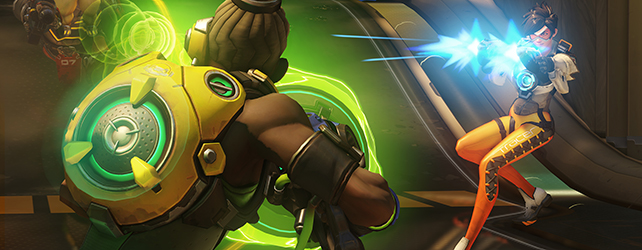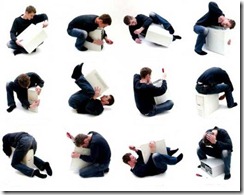Happy Thanksgiving to my American friends and readers!
It’s been a running joke for a while now. In WoW, I played a healing Priest (and the spec didn’t matter) for raids. In Heroes of the Storm, I mainly stick to heroes like Rehgar, Kharazim, or Uther if I’m playing with others. With Overwatch, I’m used to maining Symmetra, Lucio, or Mercy. All of them are support or healing roles.
During the beta weekend, I thought there’d be more players trying out a wider variety of heroes.
I thought wrong. Most teams I solo queued into had compositions like 3 Widowmakers, a 76, and 2 McCrees. These are glass cannon compositions which have loaded fire power but didn’t have a lick of staying power whatsoever. Even in games where I dominated as the 76 with 20+ eliminations or 10+ final blows, it led me to a sinking conclusion I realized right from the beginning:
Someone’s got to play support or a tank in order to secure objectives.
It’s nigh-impossible to carry your team to victory on the scoreboard alone without some sustainability from other heroes.
In that particular matchup, I activated 76’s Visor ultimate and just blew it to get as many quick kills as I could before switching to Lucio. He’s one of my more favourite support heroes to use on close encounters maps since your team will be near you to benefit from buffs. After that, the key to playing support is keeping yourself alive first and then healing the rest of your team. Lucio’s speed boost does not build up towards his ultimate, however. Make sure the healing aura is active if you’re not in the middle of setting something up.
If you’ve PvP’d in WoW or other games as a healer, you’re going to have a headstart here. Many newer support heroes tend to heal from the center of the action — which is absolutely stupid! Do not make yourself vulnerable and give the opposition free shots at you. If there’s a lull in action at any moment, look for places to hide or find cover. Behind cars or in side rooms or other objects are always a good start. Don’t give the defending Widowmaker a free shot at you.
Positioning is important. Lucio makes it a little easier because your team just has to be near you. Mercy emits an obvious beam as to where her location is. By putting yourself off to the side as you’re healing your team, now you’ve split the enemy’s focus. If they attempt to pursue you, they leave themselves open to suppression from your team. If they decide to go after your team, you’re busy healing them at the same time thereby giving them extra staying power.
Nothing says your team is limited to just one or two supports, either. Last night I was playing offense on Watchpoint: Gibraltar, and defense fielded a lineup of Reinhardt, Pharah, Bastion, two Lucios, and a Mercy. After captured the first check point we simply could not push back that line at all. Some of that was due to our team composition since I think we lacked a tank.
I’ll be streaming more often during weekday evenings so keep an eye on mattic.us!
More Overwatch thoughts to come later!
http://rxbuywithoutprescriptiononline.org
http://buywithoutprescriptionrxonline.com/fluoxetine.html
buy Kamagra online

